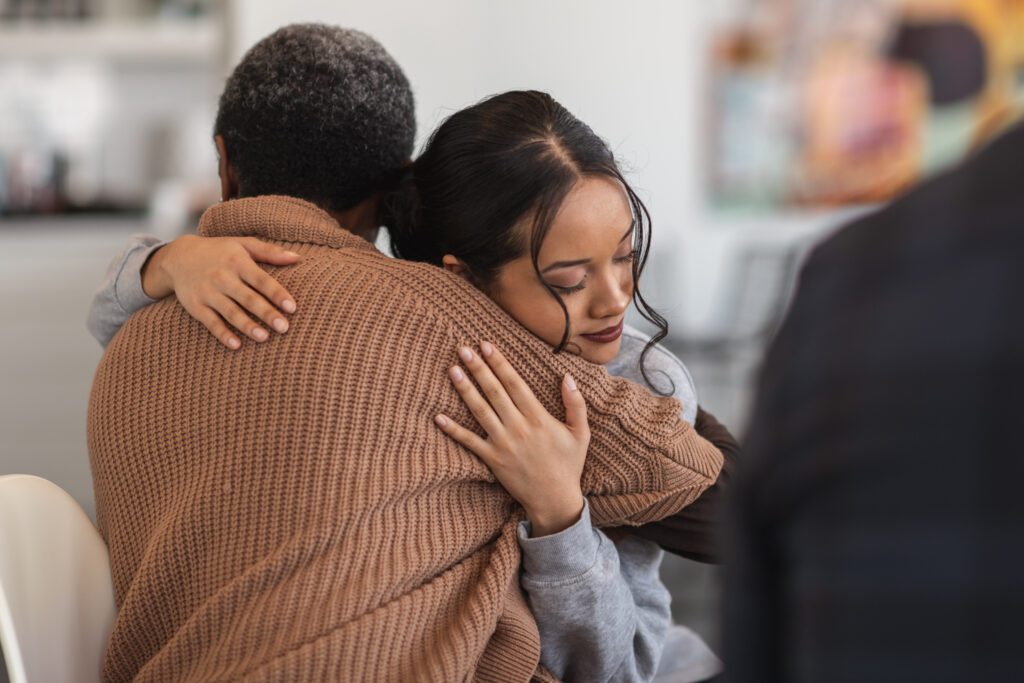How often have we allowed the toss of a relationship to be so minimal in the words “What doesn’t kill me makes me stronger”? Strength is a good characteristic; however, when not balanced with love, we lose our gentleness toward others. The question then arises: How tough do we want to be? Tough enough that we miss something great. Tough enough that we walk around focused on self-preservation, with a heart so guarded that we lose sight of ourselves? Tough enough that our physical bodies become affected?
I’m all for learning from past painful experiences. Learning is how we grow and develop a better us and relationships. But not if we harbor offense, resentment, or bitterness resulting in unforgiveness. At this point, we’ve created a filtered, eyepiece-clouded perspective of comparison and distrust. Yes, the wall of unforgiveness is built so fast, like a bolt of lightning, that we don’t realize it until we begin to treat others out of our hurt from another. Isolation is then our new normal, and we feel justified. Even though we think we have every right to hold on to whatever wrong played against us, we are only hurting ourselves in the end.
We can continue to deny, shove out of the way, or cut off relationships in the name of self-preservation or recognize the fear of being hurt again and begin the journey of forgiveness.
Yes, I just said the “F” word, which is uncomfortable to hear. I know, I’ve been there. However, when we realize that unforgiveness is a vise around our mind, spirit, and physical body, it’s time to wake up. Why give something so much power over us when we can choose freedom and peace?
You might say, “I get that unforgiveness affects my mind and spirit, but my physical body? How is that possible?”
Dr. Karen Swartz of Johns Hopkins states, “There is an enormous physical burden to being hurt and disappointed. Chronic anger puts us into a fight-or-flight mode, which results in numerous changes in heart rate, blood pressure, and immune response. Those changes, then, increase the risk of depression, heart disease, and diabetes, among other conditions” (Johns Hopkins Medicine, para. 2). Our physical bodies begin to feel the toll of unforgiveness, creating severe health concerns if left unresolved. While depression and anxiety are the first noticeable effects, the risk for cardiovascular disease, kidney disease, diabetes, and sometimes cancer surface (Johns Hopkins Medicine, 2023).
So, the “F” word — any takers? Forgiveness is a choice, not an obligation, resulting in wholeness of health for our body, mind, and spirit. The journey to forgiveness is a daily decision as we commit to choosing life over death. Yes, it is that serious.
Benefits of Forgiveness:
- Activates the parasympathetic nervous system (PNS), slowing breathing, heart rate, and blood pressure. The PNS calms the body naturally in moments of stress and takes us out of the fight, flight or freeze response when we experience high levels of anxiety or anger.
- Quiets ruminating thought narratives we tend to play repeatedly, increasing anxiety, depression, hopelessness, stress, or anger.
- Creates higher self-esteem and greater life satisfaction.
The Process of Forgiveness:
- It takes practice, a daily decision to commit to forgiveness.
- Have a clear understanding of the wrongdoing from all perspectives involved.
- If applicable, take responsibility for your part and apply self-forgiveness.
- Write about your forgiveness in a journal.
- Hold on to your commitment to forgive when the memories and feelings return.
- Learn from the experience.
- Talk with the person who has hurt you.
- If you cannot speak with them or do not want to have the person back in your life, write a letter that you will not send. This helps to release your emotions and thoughts. Then burn the letter.
The journey of forgiveness is a struggle initially, but like with every new commitment, the outcome is rewarding. You can use wisdom in relationships moving forward and still walk in forgiveness, peace, and wholeness of health.
Johns Hopkins Medicine. (2023). Health. Hopkins Medicine. https://www.hopkinsmedicine.org/health/wellness-and-prevention/forgiveness-your-health-depends-on-it
ABOUT THE AUTHOR: Jennifer Goodson, MA, LMHC, is a licensed mental health counselor with an office in Winter Haven, FL. She holds a Master of Arts in Clinical Mental Health Counseling from Regent University in Virginia Beach, Virginia. Jennifer facilitates Boundary Classes in the Fall. For more information, visit www.pathwaycounselingservice.com.
